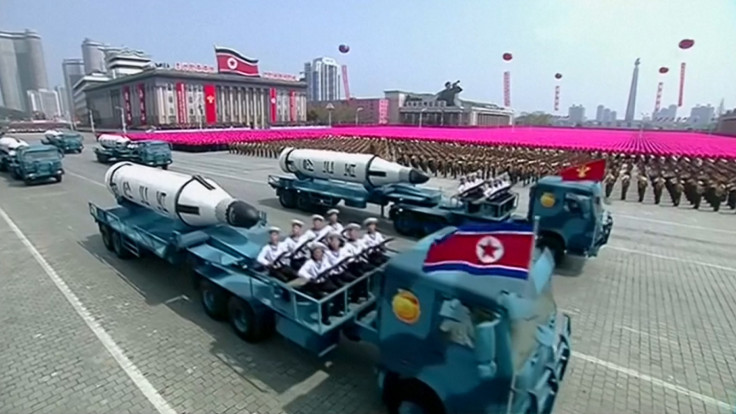Why US missile defences may not be enough to stop ICBMs from North Korea
The US military wants to allocate five ground-based interceptors to shoot down an incoming ICBM but there are only 36 of them in stock.

The US military thinks its does not have enough missile defence systems and interceptors to shoot down North Korea's ICBMs if the latter country launches a strike as it has threatened to.
Admiral Harry Harris, who heads the US Pacific Command, warned on Thursday (27 April) that American missile defences currently deployed to protect Hawaii and other US territories might be insufficient to stop a North Korean ICBM. An ICBM, or inter-continental ballistic missile, is a long range guided missile that can fly more than 5,500 kilometers.
"I believe that our ballistic missile architecture is sufficient to protect Hawaii today, but it can be overwhelmed," Harris told the House Armed Services Committee. "North Korea's capabilities are not yet an existential threat to America, but if left unchecked, it will eventually match the capability to hostile rhetoric," he added.
What Harris refers to is North Korea's ICBM known as the KN-08, which has not been flight-tested and may not be operational as of now. But once tested and operational, it will be a serious threat to US security, especially if the North can also miniaturise a nuclear bomb to fit on the missile.
While missiles like Patriot PAC-3 and the THAAD anti-missile system can intercept short- to intermediate-range missiles, they cannot counter ICBMs. As of now only a ground-based interceptor, or a Ground Based Midcourse Defense (GBMD) missile, can stop an ICBM. However, it only has a 50/50 chance of downing the incoming missile.
What Admiral Harris means is that the current stock of 36 GBMDs -- as reported by Popular Mechanics -- is just not enough to counter a full-scale missile strike by North Korea. It is not known how many ICBMs North Korea is developing, or plans to eventually build, but the US military does not want to take any chances. The US is now planning to allocate five GBMDs per incoming missile, assuming that five shots will have a better chance of stopping an ICBM than one.
"Right now, there is probably a mismatch between KJU's [North Korean dictator Kim Jong-un] rhetoric and his capability. But I believe that we have to look at North Korea as if [he] will do what he says," Harris said.
© Copyright IBTimes 2025. All rights reserved.





















